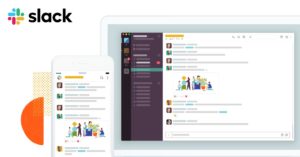Episode Summary: Preset: Visualizing Big Data with Srini Kadamati

“All jobs are now becoming data jobs,” notes Srini Kadamati, senior data scientist and developer advocate at Preset. The unofficial motto of the company, he explains, is that every member of an organization should interact with data, creating charts and dashboards, and asking and answering their own data-driven questions.
 Sales managers, for example, can interrogate dashboards to discover where they should invest marketing dollars, whether that’s paid advertising, events, and webinars or writing blog posts. Executives from all teams, in all business units, can use dashboards in meetings, in OKR reviews, or as indicators of progress towards goals.
Sales managers, for example, can interrogate dashboards to discover where they should invest marketing dollars, whether that’s paid advertising, events, and webinars or writing blog posts. Executives from all teams, in all business units, can use dashboards in meetings, in OKR reviews, or as indicators of progress towards goals.
But traditional business insights tools, such as Tableau, are often priced at a level that makes company-wide use prohibitively expensive. This is where Preset comes in. The company will offer a business insights platform with pricing at a level similar to the viewer-only tiers from other BI platforms, but with every user capable of having the same extensive permissions.
Preset offers a cloud-hosted version of Apache Superset, an open-source application for data exploration and visualization. Maxime Beauchemin started working on Superset at a hackathon in 2017. At the time Beauchemin was working for Airbnb and was frustrated to find that business intelligence platforms weren’t compatible with the modern data stack. His team wanted to play around with big data tools like Druid, Presto, and Trino, for example, and found that wasn’t possible with Tableau.
Beauchemin saw how web scale technologies could cheaply and efficiently deliver value to millions of users — but in the business intelligence space, companies were still selling based on a cost-per-core basis. Superset uses React and TypeScript in the frontend and Python in the backend, and the company has embraced type hinting, a new Python feature to help with scalable code, and SQLAlchemy, an open-source SQL toolkit for the language.
“Open-source ultimately gives us and gives end users that want to use cutting edge features just a lot more speed,” Kadamati explains. “By betting on these open standards, you know that as your data stack evolves and changes, your BI layer will also kind of just keep up, that you’re not waiting for a vendor to hopefully support and update their functionality one day.”
Preset is currently in closed beta testing, with plans for a general release within the next few months. The platform will be entering a competitive and crowded business intelligence market: in 2019, Salesforce acquired Tableau for just under $15.7 billion. At such a cost, Tableau might be expected to make up a hefty share of the business intelligence market, but in reality, it currently sits at around 11%.
After the release, Kadamati is particularly excited about the potential to add support for notebooks into the platform. Superset currently has a no-code chart builder as well as a SQL Lab, but the added functionality would mean users could also do processing, analysis, and visualization in Python or Julia. “I think adding notebooks will really kind of complete the platform,” Kadamati says, “And I think will make it super-compelling.”
This summary is based on an interview with Srini Kadamati, senior data scientist and developer advocate at Preset. To listen to the full interview, click here.
















